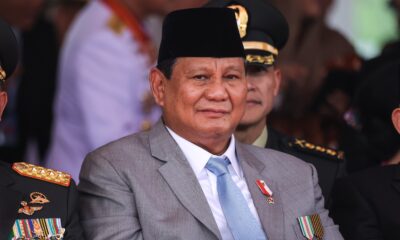EU Parliament Seeks More Centralized Control Over Member Nations

In a contentious vote, European lawmakers have pushed forward a resolution that could mark a pivotal shift in the power dynamics within the European Union. On Wednesday, the European Parliament passed a proposal by the “Verhofstadt Group” aimed at diluting the veto power of individual member states. The move has been met with a blend of concern and outright alarm.
The European Union, a bloc that prides itself on cooperation and unity, now faces a stark internal divide. With a narrow majority of just 17 votes, the resolution reflects a Parliament at odds with itself, as conservative factions stand firmly against what they perceive as an overreach by Brussels.
Guy Verhofstadt, the leader of the group behind the proposal, has positioned the removal of veto rights as a way to counteract what he calls “blackmail” by nations less enthusiastic about the EU’s direction. However, this thinly veiled criticism, aimed at figures like Hungarian Prime Minister Viktor Orbán, is not without its challenges.
Polish MEP Jacek Saryusz-Wolski, a former member of the Verhofstadt Group, has not minced words, calling the move a “silent putsch with communist roots.” His fears echo a broader apprehension that the EU is straying from a community of sovereign states toward a superstate — a transformation occurring without the express consent of the European populace.
Despite the resolution’s passage, its practical effects remain symbolic for now. Treaty change within the EU still requires unanimous agreement from all member states, a hurdle that remains intact with countries like Hungary and Poland firmly opposed.
The debate over the resolution has rippled beyond the halls of the European Parliament. On the same day as the Dutch election, Rob Roos, Vice Chairman of the European Conservatives and Reformists (ECR) group, lamented the juxtaposition of democratic celebration in the Netherlands with undermining democracy in Strasbourg.
Donald Tusk, a figure well-versed in EU politics and a prospective Polish PM, has criticized the federalist ambitions as “stupid” and “naive.” His stance indicates a broader resistance among member states to cede further control to EU institutions. Tusk’s comments resonate with a sentiment that such centralization efforts are reminiscent of the policies that spurred the United Kingdom to exit the Union in 2016.
As the EU eyes expansion with the potential inclusion of Western Balkan states and Ukraine, the centralization debate intensifies. Despite his Europhile leanings, Tusk’s opposition to the centralization plans underscores a tension between national sovereignty and the federalist vision espoused by Brussels.
This move comes when Poland’s political landscape is highly charged, with the ruling conservative PiS party portraying Tusk and his coalition as agents of foreign interests, specifically EU and German agendas. Tusk’s recent actions, particularly his discussions in Brussels about unfreezing EU funds for Poland, have drawn scrutiny amid ongoing disputes between the PiS-led government and the European Commission.
The European Parliament’s vote may be a harbinger of deeper changes within the EU’s power structure. It has also spotlighted the ever-present debate over national sovereignty versus collective decision-making. As member states grapple with these issues, the future shape of the EU hangs in the balance, with each nation holding its breath to see whether their voices will be bolstered or drowned out by the chorus led by Brussels.
























